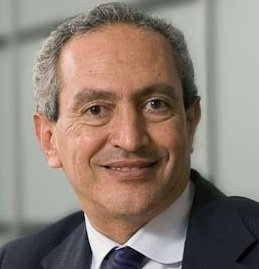Investors are watching anxiously for the outcome of a standoff between the Egyptian government and the country’s largest construction company, Orascom Construction Industries (OCI), over a surprise tax charge of US$2bn levied late last year.
On 3 March Egyptian authorities placed a travel ban on OCI’s billionaire CEO Nassef Sawiris and on his father, the company’s founder and former chairman, Onsi, following the company’s decision in February to delist from the Egyptian stock exchange and relocate to Amsterdam.
Investors have been worried that the accusation of tax evasion, relating to OCI’s sale of its cement business to Lafarge back in 2007, signals hostility on the part of Egypt’s new, cash-strapped government, led by the Muslim Brotherhood’s Mohamed Morsi, toward companies who thrived under the corrupt authoritarian government of Hosni Mubarak.

President Morsi: vow
OCI has strongly denied it owes any money, pointing out in a statement on its website that under Egyptian law, capital gains resulting from the sale of shares listed on the Egyptian Stock Exchange were, and still are, are tax exempt.
OCI’s consternation is evident when it says that it “fails to understand” how the Egyptian Tax Authority could have blamed the five-year delay in making its claim on “errors in examination” by former tax officials.
The two sides have held talks to no apparent avail until this week when Egypt’s stock exchange rose on 20 March from a 14-week low on the news that there was initial agreement between OCI and the government on an offer by OCI to pay just over $1bn to settle the matter.

Travel ban: Nassef Sawiris
Meanwhile the business community is worried about President Morsi’s intentions. The Economist newspaper reports that Mr Morsi vowed in a speech last October to recoup 100 billion Egyptian pounds from companies he said were corrupt.
“The government is talking about attracting foreign investment but its actions aren’t consistent with that,” Wael Ziada, head of research at the Cairo-based investment bank, EFG-Hermes, told Bloomberg.
“A settlement would be a positive development in the medium term, but it doesn’t mean we won’t see similar cases in the future, which is what concerns potential investors.”






